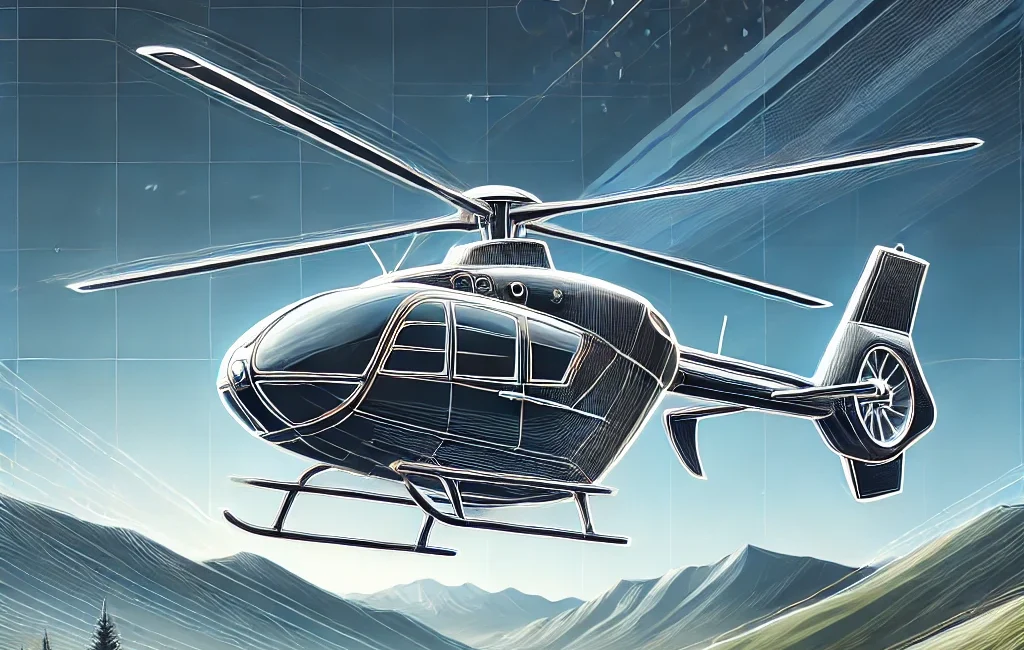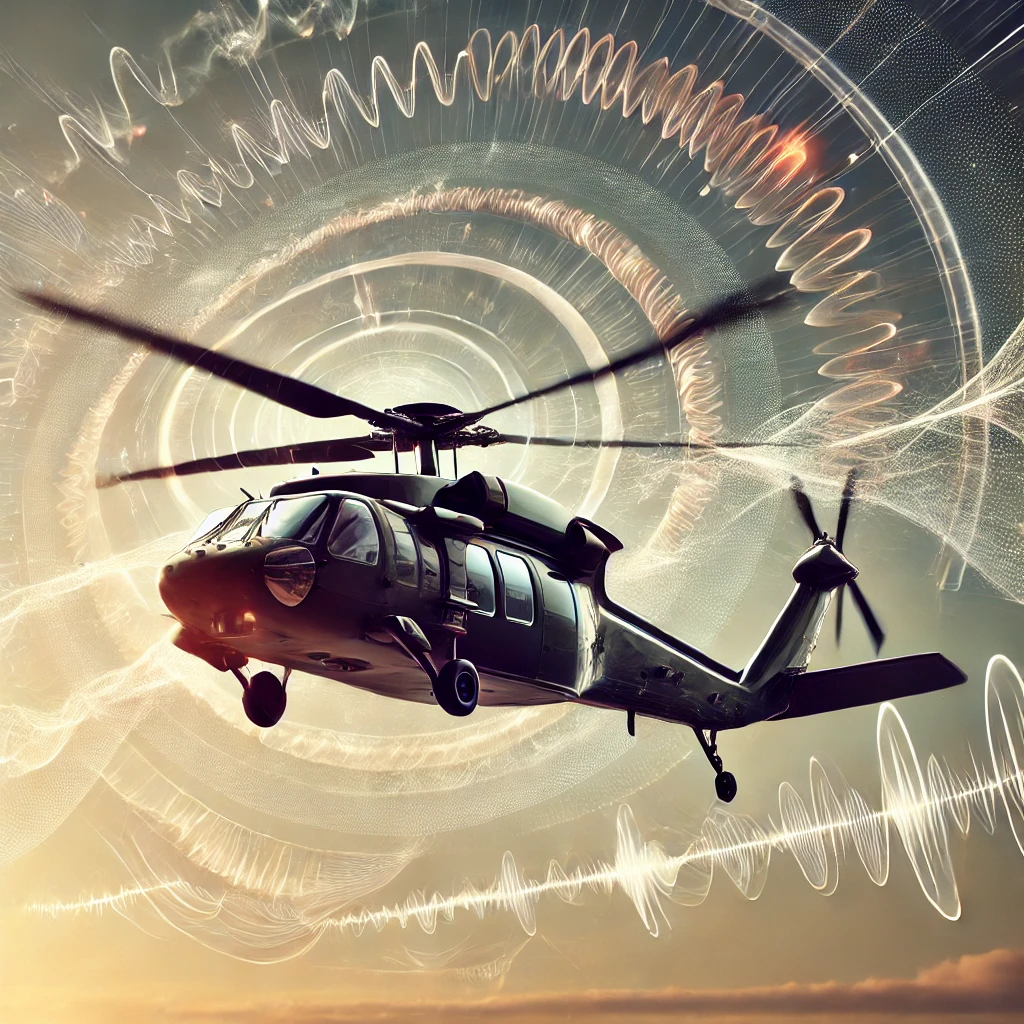The idea of piloting a helicopter is thrilling to many, but the question often arises: Can anyone learn to fly a helicopter? The answer is generally yes, but becoming a helicopter pilot requires specific training, skills, and dedication. Whether for recreational purposes, a career in aviation, or emergency services, learning to fly a helicopter is an achievable goal for most people with the right preparation. In this article, we’ll explore the training process, skills required, and what to expect when learning to fly a helicopter.
1. Who Can Learn to Fly a Helicopter?
In theory, anyone who meets the basic requirements for flight training can learn to fly a helicopter. Helicopter flight training is open to individuals from all walks of life, whether they are looking for a career in aviation, a new hobby, or specific mission-driven skills such as search and rescue or medical transport.
Basic Requirements:
- Age: In the U.S., students must be at least 16 years old to fly solo and 17 years old to obtain a Private Pilot License (PPL) for helicopters.
- Medical Fitness: Aspiring pilots need to obtain at least a Third-Class Medical Certificate from an Aviation Medical Examiner. This ensures that the student is physically fit to operate an aircraft safely.
- English Proficiency: The ability to speak, read, and understand English is required for all aviation training programs.
2. The Helicopter Pilot Training Process
The path to becoming a helicopter pilot involves both ground school and flight training. Ground school covers the theoretical knowledge required to fly, while flight training involves hands-on practice in an actual helicopter.
Ground School:
Ground school provides a foundation in:
- Aviation Regulations: Understanding the rules and regulations governing helicopter flight.
- Aerodynamics: Learning the principles that allow helicopters to fly, including lift, drag, thrust, and weight.
- Navigation: Learning how to navigate using maps, instruments, and GPS systems.
- Weather and Meteorology: Understanding how weather conditions affect helicopter flight.
- Emergency Procedures: Learning how to handle engine failures and other emergency situations.
Flight Training:
- Initial Flight Lessons: Students begin by learning the basics of controlling the helicopter, such as hovering, taking off, landing, and turning.
- Solo Flight: After completing a certain number of hours with an instructor, students are required to complete a solo flight, where they fly the helicopter without supervision.
- Cross-Country Flights: Students must also complete cross-country flights, which involve navigating to a different airport or location.
- Licensing: To obtain a Private Pilot License (PPL), students must pass both a written exam and a practical flight test (often referred to as a check ride).
3. Time and Costs Involved in Learning to Fly a Helicopter
One of the most important considerations for aspiring helicopter pilots is the time and cost required to complete the training. Becoming a helicopter pilot takes dedication and can be financially demanding.
Time Commitment:
- To earn a Private Pilot License (PPL) for helicopters, students need to complete at least 40 flight hours, although most students require 50 to 60 hours of flight time to be fully prepared for the flight test.
- Advanced licenses, such as the Commercial Pilot License (CPL), require 150 to 200 flight hours, depending on the country.
Cost of Training:
- Private Pilot License (PPL): The cost of obtaining a PPL typically ranges from $15,000 to $25,000, depending on the flight school, location, and type of helicopter used for training.
- Commercial Pilot License (CPL): The cost of a CPL is higher, often between $50,000 and $80,000, as it requires more flight hours and advanced training.
Additional Costs:
- Medical Exam: The cost of a Third-Class Medical Certificate ranges from $100 to $200, depending on the examiner.
- Study Materials: Books, manuals, and ground school courses can add a few hundred dollars to the overall cost of training.
- Flight Gear: Pilots may need to purchase gear such as headsets, logbooks, and navigation tools, which can also add to the cost.
4. Skills Required to Fly a Helicopter
Flying a helicopter requires a unique set of skills, some of which are innate and others that can be developed through training.
Hand-Eye Coordination:
Flying a helicopter requires precise hand-eye coordination, as the pilot must manage multiple controls simultaneously. The cyclic control moves the helicopter forward, backward, and sideways, while the collective adjusts the altitude. At the same time, the pilot must use anti-torque pedals to control the helicopter’s direction. Mastering these controls takes practice, but good coordination is essential.
Situational Awareness:
Pilots must always be aware of their surroundings, including the weather, terrain, air traffic, and the performance of the helicopter itself. This requires strong multitasking abilities and attention to detail.
Calm Under Pressure:
Emergencies, such as engine failures or unexpected weather conditions, require pilots to remain calm and make quick decisions. Pilots are trained to handle these situations, but the ability to stay calm under pressure is an invaluable skill.
Physical Fitness:
While flying a helicopter is not physically strenuous, maintaining good physical health is important, as it ensures a pilot’s reflexes, vision, and stamina are up to the task. Pilots must pass medical exams regularly to ensure they meet the necessary health standards.
5. Career Opportunities for Helicopter Pilots
Once a pilot has earned a Private Pilot License or Commercial Pilot License, there are numerous career opportunities available, depending on the level of certification achieved.
Private Pilot:
- Personal Use: Many people pursue helicopter flight training for recreational or personal use. A Private Pilot License allows individuals to fly for their own enjoyment but does not permit them to be paid for their services.
- Family and Friends: A Private Pilot can also fly family and friends, provided they do not charge for the flight.
Commercial Pilot:
- Tourism and Sightseeing: Helicopter pilots can work in the tourism industry, flying passengers on sightseeing tours.
- Search and Rescue: Pilots can assist in emergency services, including search and rescue operations, medical evacuations, and firefighting.
- Corporate Transport: Some helicopter pilots are employed by companies to fly executives or important clients to various locations.
- Military and Law Enforcement: Helicopter pilots are in demand for military operations, border patrol, and police work.
6. Can Anyone Fly a Helicopter?
Ultimately, flying a helicopter is achievable for most people who are willing to invest the time, effort, and resources into training. While there are specific physical and cognitive skills required, these can be developed with proper instruction. Whether learning to fly for personal reasons or embarking on a career as a professional pilot, helicopter flight training is an exciting and rewarding endeavor.
Conclusion
Learning to fly a helicopter is possible for many individuals who meet the basic requirements and are committed to the process. While it requires both time and financial investment, as well as the development of specific skills, the rewards are immense. With dedication and the right training, anyone with a passion for flight can learn to master the controls of a helicopter and experience the unique freedom of piloting one of the most versatile aircraft in aviation.
Related Articles
- Can Anyone Learn to Fly a Helicopter? Understanding Training and Skills Required
- Why Do Helicopters Make That Distinctive Sound? Helicopter Noise Explained
- Do Helicopters Require More Maintenance Than Airplanes? Separating Fact from Fiction
- How Far Can Helicopters Travel? Dispelling Range Myths
- What Happens if a Helicopter Engine Fails? Debunking Catastrophe Myths
More from This Category
- Are Helicopters More Dangerous Than Planes? A Safety Comparison
- Do Helicopters Have Parachutes? Exploring Emergency Systems
- Can Helicopters Fly Upside Down? The Truth Behind Aerobatic Stunts
- Do Helicopters Need a Runway? Myth vs. Reality
- How Much Does It Really Cost to Fly a Helicopter? Busting the Myths
- How High Can Helicopters Fly? Debunking Altitude Myths
- Can Helicopters Fly in Bad Weather? Understanding Helicopter Capabilities
- Do Helicopters Really Hover Forever? Separating Fact from Fiction
- How Safe Are Helicopters? Debunking Common Misconceptions
- Top 10 Myths About Helicopter Safety: What You Need to Know



